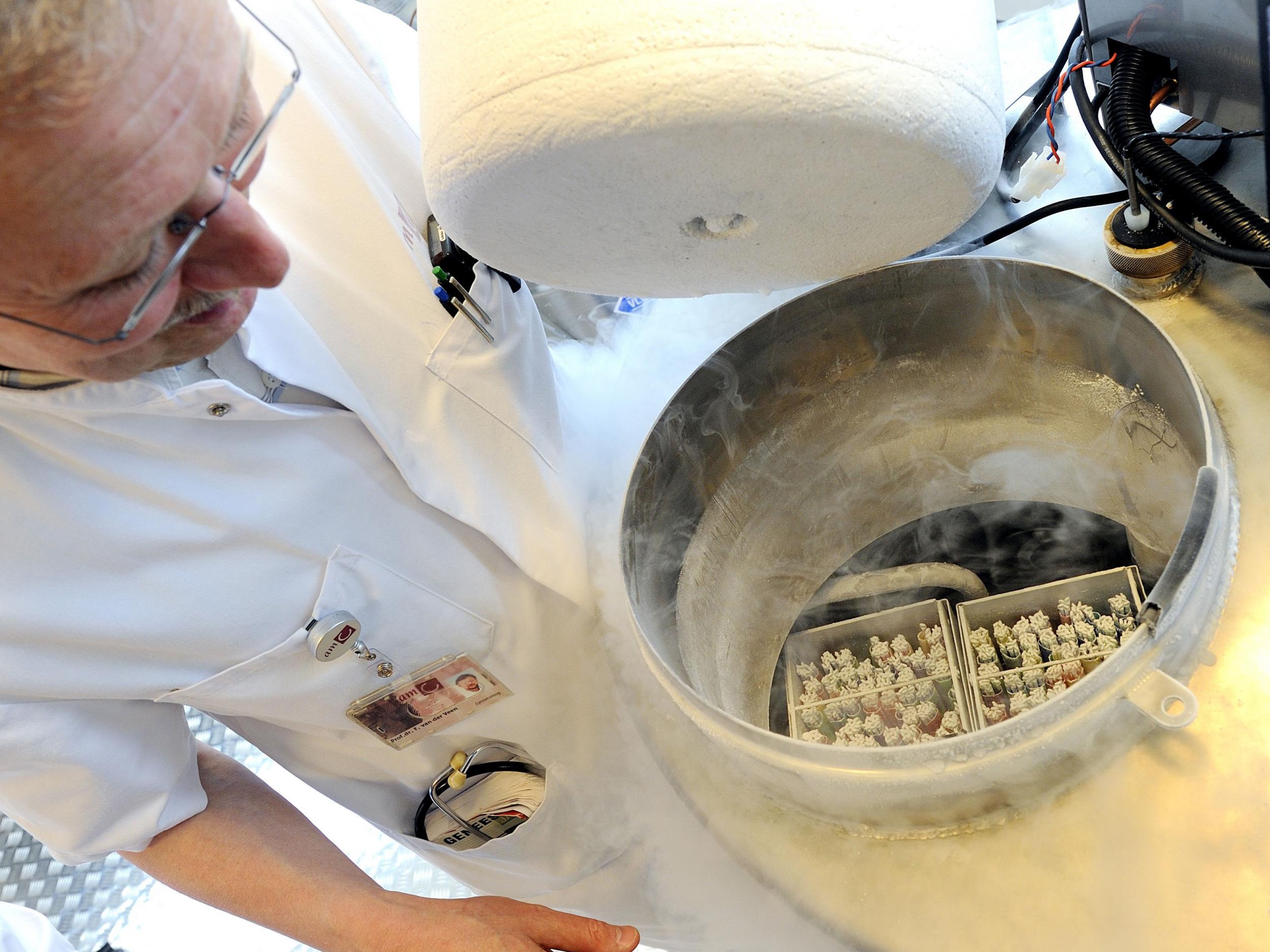Women who freeze their eggs do so to meet the right partner and not for career, study finds
Many women say freezing their eggs is a 'last resort' and they still hope to conceive naturally

Women who choose to freeze their eggs do so to give them time to find the right partner and not for career reasons, new research has found.
In the first study of its kind into women’s personal motivations for freezing their eggs, researcher Kylie Baldwin interviewed 31 women who had decided to preserve their fertility for social, rather than medical, reasons.
Ms Baldwin told the Independent her findings contradicted the common view, often presented in the media, that women undergo the procedure to enable them to further their careers.
“I was suspicious of this from the outset, wondering whether women would spend at least £6,000 a technology that was far from guaranteed in order to climb the career ladder,” she said.
“None cited career as reason for freezing eggs,” said the lecturer at Leicester's De Montfort University. “All of them were waiting for the right partner, who was going to be a good father for their children.”
In fact, some of the women said they had done well in their careers not because they had frozen their eggs, but precisely because they hadn’t been able to find a suitable partner and weren’t in a relationship.

A number of study participants, who were aged 32-44 and were from the UK, US and Norway, specified they wanted to meet a man who would be a “hands on father”.
More than 800 women in Britain froze their eggs in 2014, a “substantial increase” from previous years, according to the Human Fertilisation and Embryology Authority (HFEA).
And multinational companies such as Facebook and Apple have announced they will offer the treatment to female employees, fuelling notions of egg freezing as a career choice.
But the lack of a suitable partner was cited as a major reason for registering for the procedure by both Ms Baldwin and the HFEA, who found that women aged over 38 were most likely to give “no male partner” as a response to their “cause of infertility”.
Ms Baldwin, a member of the university’s Reproduction Research Group, said for many of the women, freezing their eggs was seen as a “last resort” and they still hoped to conceive naturally.
“The participants wanted to find a partner, and didn’t want to have to use their frozen eggs, which were the last resort,” she said.
“I asked a number of the participants if they would consider using sperm donation, and there was a mixed response.
“Some said they would consider it, whereas others weren’t willing to, because they really wanted to have this family unit with a male partner, to parent the children alongside them.”
Join our commenting forum
Join thought-provoking conversations, follow other Independent readers and see their replies
Comments